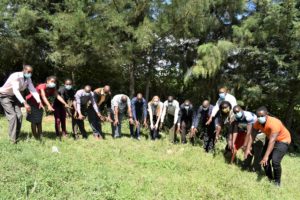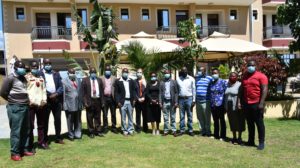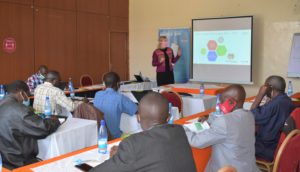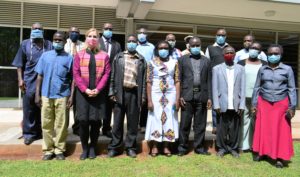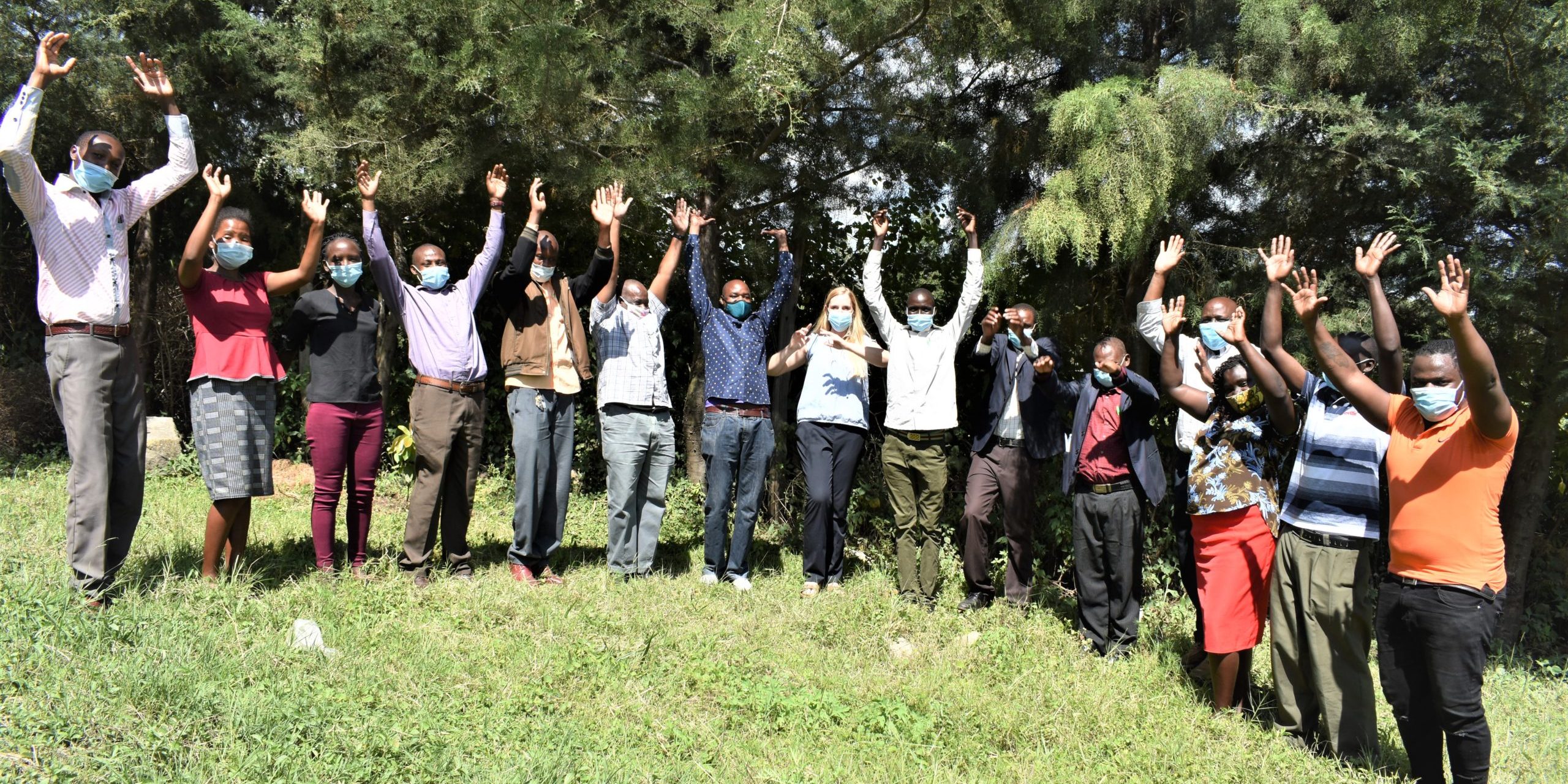We thank our project partners who worked with us from 2017 – 2020 and will continue working with us in the new project. Together we shall continue to utilize the potentials of the Kenyan Co-operative sector. We are looking forward to the next 3 years of partnership to come!
With this in mind, DGRV and the project teams of CETIC Kakamega, CETIC Narok, The County of Narok – Trade, Industrialization and Cooperative Development and Kipkelion Youth Council, came together in early December 2020 to debate on how to best address the result areas of the new project, which are:
- Increased performance of primary co-operatives due to innovation and youth inclusion,
- Sustainability of Co-operative Unions with demand-oriented service provision and
- Appropriate risk management through improved audit capacities and legislation.
This workshop series was a cornerstone to jointly embrace the important contributions the next BMZ funded project cycle will make to the co-operative development in Kenya.
“Promotion of co–operative structures in East Africa and Tunisia as a contribution to strengthening rural regions”
Conceptually, the project interventions from 2021 – 2023 are structured in a way that supports a multi-level institutional growth, which is typically to be found in co-operative systems worldwide:
Individuals form member-based co-operatives on primary level. Here, on micro level, co-operative enterprises respond to economic and social development needs in the communities. At this point, the DGRV interventions are geared towards modernizing the public perception of co-operatives by supporting to pilot new business models, e.g. service and health co-operatives. Moreover, in this process young people are actively encouraged to take up member- and leadership responsibilities in new, innovative types of co-operatives.
One level up, primary co-operatives organize themselves in “Unions” which are to be found on meso level. In Kenya, co-operative Unions are made up of primary co-operatives of the same value chain, e.g. dairy or coffee. Their original purpose is to promote the performance of their associate member co-operatives by providing services of need.
Currently, the service mandates of co-operative unions are, to a large extend, not sufficiently utilized in Kenya. Therefore, the project 2021 – 2023 will support selected co-operative unions to respond to the economic needs of their members more precisely with tailored advisory services and products. In particular, audit advisory services and management capacities shall be improved through this collaboration.
Lastly, the entire co-operative structure is regulated and supervised on macro level through its governmental institutions. In Kenya, this is the Ministry of Industrialization, Trade and Co-operatives (MITC). At this level, DGRV Kenya together with MITC focuses on optimizing the regulatory framework to better suit small scale co-operatives.
At present, the legislation in place does not proficiently differentiate between high risk co-operative businesses (due to their large size for example) and lower risk co-operative enterprises with an exemption of large scale savings and credit co-operative societies.
Because of this, among other factors, small scale co-operatives often struggle to achieve compliance as procedures are complex and time consuming compared to the capacities of those co-operatives. As a result, the larger share of the co-operative sector remains without appropriate monitoring. Acknowledging this challenge, we together with our partners are committed to define alternatives and additions to existing supervisory standards pursuing to improve their appropriateness in regards to risk mitigation in the coming 3 project years.
DGRV Kenya / German Kenyan Cooperative Development are excited to implement these new project perspectives in close collaboration with our project partners.
